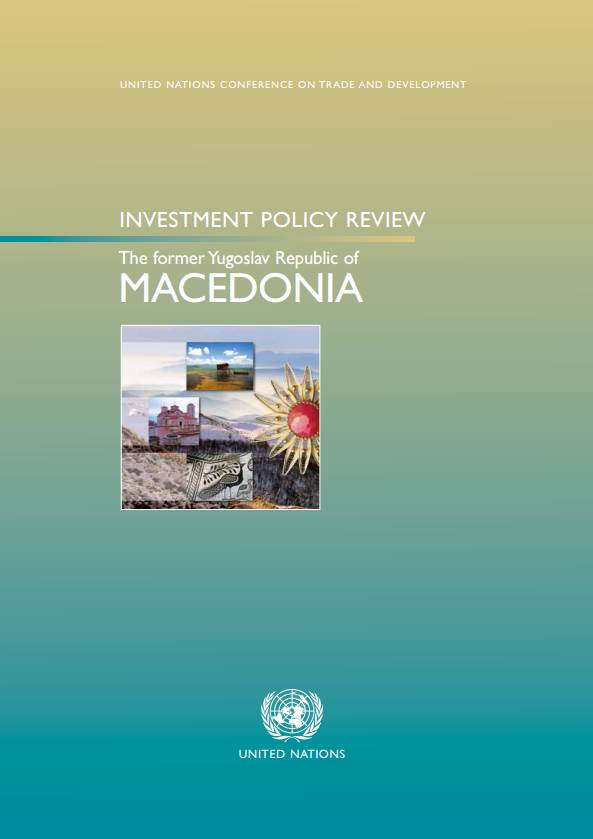Investment Policy Review of the Former Yugoslav Republic of Macedonia
The Former Yugoslav Republic of Macedonia has adopted an open stance towards FDI. With the stabilization of the country's political situation since the early 2000s, the Government has accelerated reforms to modernize the economy, increase welfare and prepare the country for its integration into the EU. The business environment has improved significantly, and investment promotion has become very active. These reforms have brought about increased economic growth as well as higher FDI inflows. Although the impact of FDI has remained relatively small so far, it is noticeable in a few sectors including banking and telecommunications.Against this background, the IPR proposed an overall strategy to attract more FDI and, importantly, to derive more benefit from it based on the following five main pillars:
- Achieving global excellence in the investment framework by addressing remaining regulatory bottlenecks, including measures to streamline the process of issuing construction permits, to improve the fiscal regime and to efficiently implement existing laws and regulations.
- Creating synergies between FDI and industrial policy through the empowerment of small and medium-sized enterprises, development of supplier linkages, creation of clusters, and a review of the development strategy of Technological Industrial Development Zones.
- Strengthening policy-making to ensure an integrated treatment of issues dealing with investment, competitiveness and industrial policy. To this end, the IPR recommended a number of measures aimed at rationalizing the policy-making structure and reallocating responsibilities.
- Rationalizing the investment promotion effort with a view to strengthen capacities and ensure the effective delivery of consistent messages.
- Ensuring effective policy implementation through an effective monitoring and evaluation mechanism.
UNCTAD provided technical assistance to the Government to deal with IPR recommendations, including a training workshop on survey methodologies for collecting data on FDI and TNC activities for Government representatives. It also trained officials on issues related to international investment agreements.
















